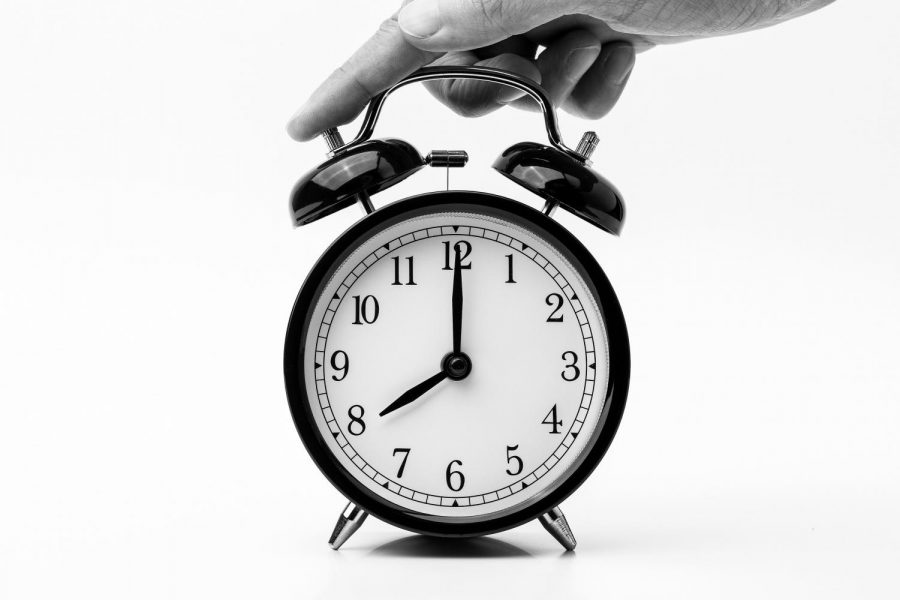Christopherson: Utah High Schools Need Later Start Times
February 20, 2020
Since starting college, I’ve gotten two to three more hours of sleep a night than I ever did in high school – and it’s not because I’m slacking off. Admittedly, high schoolers face enormous pressure to perform in school, start gaining work experience, excel at multiple extracurricular activities and sustain impressive social lives. But with a full course load, a part-time job and extracurriculars like writing for the Chronicle, I have as much on my plate now as I did then — plus the added pressures of keeping myself fed, clothed and sheltered.
I’m convinced that the key to my now-consistent eight hours of sleep is that I never have to be at school (or work) before 9 a.m., which is over an hour later than the start of my days at Jordan High School in Sandy. Utah State Rep. Suzanne Harrison and Sen. Ann Millner seem to have come to a similar conclusion. This Legislative Session, they’re sponsoring a bill to address Utah teenagers’ chronic sleep deprivation. It’s absolutely critical that it passes.
As a teenager, I rarely got more than six hours of sleep on school nights. Between the end of my last class and the time I finally got to bed, I was swamped with violin lessons and rehearsals, homework, church activities and, like many of my classmates, a job and family responsibilities. I typically had to be up by or before 6:30 a.m., and it was a challenge to stay awake through last period. As a senior, I remember falling asleep in chemistry class every day without fail, despite sitting in the front row of a well-lit classroom. Some nights I wept with exhaustion over my homework, but felt I had no choice but to sacrifice my sleep to get my assignments in on time. Looking back, I still can’t think of any way I could’ve gotten more sleep during the week without letting my grades suffer — and my school’s 7:55 a.m. start was considered late relative to the other schools in my area.
The vast majority of teenagers have the same problem. HCR 3 points out “that 75.4% of U.S. high school students get fewer than eight hours of sleep and 43% get less than six hours of sleep on school nights.” Sleep experts recommend that children between 13 and 18 years old should get as many as ten hours of sleep per night.
Starting school after 8 a.m. is a known solution for this sleep deprivation epidemic. There’s evidence that later school start times do make a difference in the amount of sleep teenagers get, and don’t necessarily force them to stay up even later to compensate for their delayed wake-up times. In 2017, a Colorado school district found that pushing their high school start times to 8:20 a.m. from 7:10 a.m. yielded 48 more minutes of sleep a night among students. Here in Utah, according to the proposed resolution, “only a few high schools start the school day after 8 a.m.”
People sometimes express concern that later school start times would infringe on time for after-school sports and other extracurricular activities, but I don’t think that’s such a bad thing. It shouldn’t be controversial to suggest that another half hour or so of sleep is worth sacrificing a half hour of football practice, dance rehearsals or TV time. Delaying school by as little as 30 minutes would send a message to Utah students that we prioritize their health over everything else – and, by extension, their academic success. That alone might do as much to improve student engagement and outcomes as the increase in their alertness and motivation at school would.
Harrison’s and Millner’s bill may not require school districts to push back their high school start times, but it would nudge them in the right direction. I hope that the resolution will not only pass but that schools will take it as an opportunity to reevaluate — and hopefully change — their bell schedules in favor of student health and well-being.








